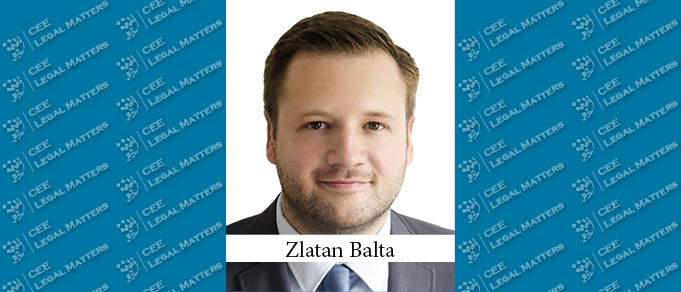Resolving the political deadlock in one of the Bosnian entities, tackling inflation, and a shortage of workers are among the most recent challenges in Bosnia and Herzegovina, according to Partner Zlatan Balta of Legal Partners, in cooperation with Deloitte Legal.
"The political atmosphere in Bosnia and Herzegovina remains strongly influenced by the upcoming general elections in October 2022," Balta begins. "The specific political structure of the country adds additional complexity to the matter – we have weighty discussions on introducing amendments to the electoral law and the Constitution of the Federation of Bosnia and Herzegovina in order to resolve the political deadlock therein. Just a few days ago, we had large demonstrations with thousands of people in Sarajevo protesting electoral changes by the Office of the High Representative."
"The Bosnian economy was hit hard by current global events," he explains. "We have the highest inflation rate in the region, with transportation, energy, and food prices drastically increasing. The country has a problem of semiskilled or mid-skilled labor emigrating to Western European countries – recently this trend also includes highly skilled workers from the IT sector who, despite having a decent income, chose to relocate due to the political climate and better opportunities abroad." Consequently, he notes, there is a shortage of workers in sectors such as construction, with construction companies having to rely on foreign workers for some projects.
"However, aside from the inflation, the Bosnian economy is improving compared to previous years," Balta points out, adding that the main projects carried out in the past few months include infrastructure and energy. "The largest infrastructure projects in the country included investments in highways and, recently, a tender was announced for the construction of one of the largest tunnels in Europe, the 10.5-kilometer Prenj tunnel." Additionally, he says, the EBRD is financing large projects in public transportation in Sarajevo.
"Energy remains our largest export product, and there are quite a few energy projects underway," Balta adds. "The project of the Tuzla power plant seems likely to fail, with General Electric withdrawing and the Chinese contractors left hanging, but still, there are many, mostly privately funded, wind and solar park projects in the pipeline, as well as two hydroelectric power plants." Notably, he says that Bosnia and Herzegovina’s IT and tourism sectors are also developing rapidly.
Overall, "Bosnia and Herzegovina is a good place to invest, especially in keeping with the near-shoring trends resulting from recent global events. The country has a great location close to the EU, a good workforce, and lower costs, which makes it a great choice for establishing manufacturing plants, for EU companies, for example." Despite the challenges, "the vast majority of foreign investors are happy with their investment in Bosnia and Herzegovina," Balta points out.
According to Balta, there are also some developments in the tax regime. "There were recent amendments to the VAT rulebooks of the authority," he notes. "The new regime introduces an obligation for foreign transport companies to register and pay VAT when transiting the country. Additionally, foreign digital service providers have to pay VAT for streaming services purchased by users in Bosnia and Herzegovina, and have recently begun registering for this obligation."
Balta highlights the backlog in legislative activities. "Republika Srpska is a bit more flexible and quicker in terms of adopting legislation, however, the Federation still faces some challenges," he says. "There are many amendment proposals – on enforcement proceedings, on administrative proceedings, on energy, electricity, and renewable energy sources, and also the personal income tax and the contributions law." Unfortunately, "some of the existing laws are very old school (lacking implementation of electronic signatures, requiring the filing of hard copies of documents, etc.) and the proposed amendments look to resolve some of those issues, but it is not clear when they will be adopted, mostly due to the upcoming elections" he concludes.

















